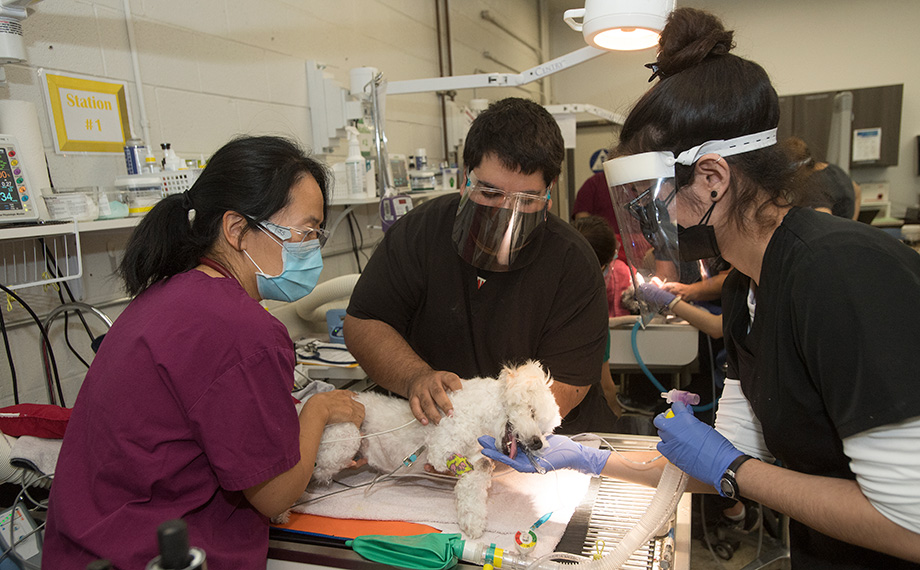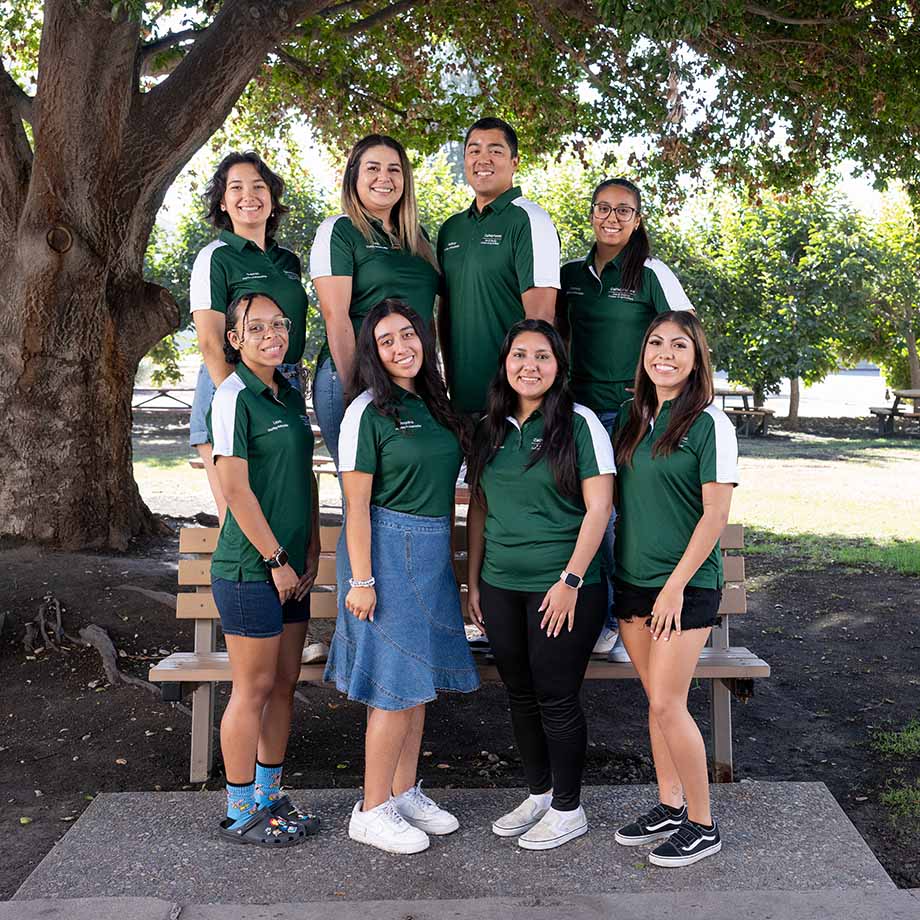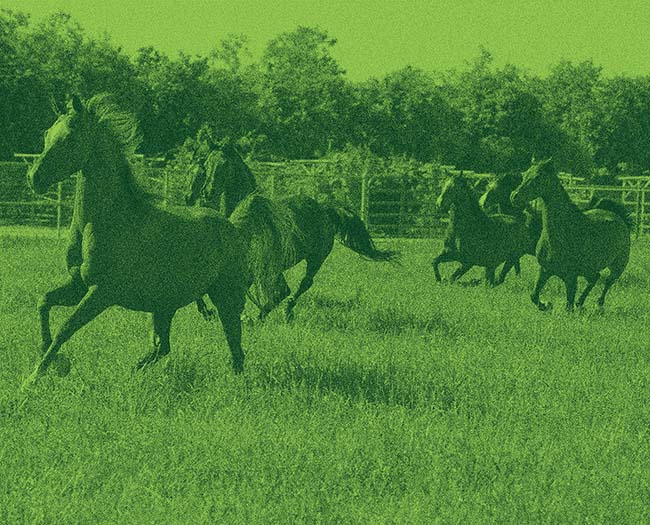Animal Health Science, B.S.
About the Major

If you dream of caring for animals, enroll in the animal health science major. It will put you on track to becoming a veterinary technologist, the veterinary equivalent of a nurse.
In this major, you'll get a STEM-based curriculum with plenty of hands-on experience, working with companion and farm animals, learning how to handle them, taking x-rays, performing dental exams, administering vaccines, and assisting in surgeries.
After graduation, you can work in veterinary hospitals, private practice, the pet food industry, public health, or business administration. You can focus on business, research, nutrition, anesthesiology, dentistry, or emergency and critical care.
We are the only four-year veterinary technologist program on the West Coast accredited by the American Veterinary Medical Association's Committee on Veterinary Technician Education and Activities.
Our students are eligible to take the Veterinary Technician National Exam (VTNE) and become licensed as a registered veterinary technologist (RVTg). Read more about our students' passing rates below.
VTNE Passing Rates
Effective March 1, 2014, all veterinary technician applicants are required to take and pass the Veterinary Technician National Examination (VTNE) to be licensed in the state of California. In April 2019, the California Veterinary Medical Board discontinued the California State RVT exam as a requirement for licensure.
| Exam Data | July 15, 2022- Aug. 31, 2024 |
||
|---|---|---|---|
| Number of first-time candidates that have taken the VTNE | 41 | ||
| Three-Year VTNE Pass Percentage (%) | 86% | ||
| Three-Year VTNE Pass Percentage (%) National Average | 70% | ||
Notice to Students re: Professional Licensure and Certification
California State University programs for professions that require licensure or certification are intended to prepare the student to meet California licensure and certification requirements. Admission into programs for professions that require licensure and certification does not guarantee that students will obtain a license or certificate. Licensure and certification requirements are set by agencies that are not controlled by or affiliated with the California State University and licensure and certification requirements can change at any time.
The California State University has not determined whether its programs meet other states’ educational or professional requirements for licensure and certification. Students enrolled in a California State University program who are planning to pursue licensure or certification in other states are responsible for determining whether they will meet their state’s requirements for licensure or certification. This disclosure is made pursuant to 34 CFR §668.43(a)(5)(v)(C).

Get Involved
Student Life in Animal & Veterinary Science
Get involved, get connected. Develop leadership and team-building skills. The Huntley College of Agriculture has a wide variety of clubs, including the Animal Health Science & Technology Association (AHSTA), the Pre-Veterinary Club, and the Livestock Show Team, which participates in intercollegiate competitions. In addition, there are clubs that are open to any major, including Ag Council;...



